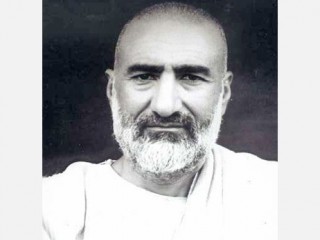
Abdul Gaffar Khan biography
Date of birth : -
Date of death : 1988-01-20
Birthplace : Hashtnagar, Utmanzai, Charsadda, British India
Nationality : Indian
Category : Historian personalities
Last modified : 2010-04-27
Credited as : political and spiritual leader, follower of Mahatma Gandhi, Hillary Clinton
0 votes so far
For all his austerity and simplicity, Gaffar Khan embraced the modern world and acknowledged the progress that Europe and America had made in some crucial areas. He enlisted unarmed recruits from the countryside and hoped to supersede the culture of the gun. His practice of Islam and non-violence were shaped by two longings – to rid the Pakhtoons of revenge and save them from destruction that violence would invite from the British who were the colonial power.
Badshah Khan was the ‘Peacemaker from the Pashtun Past’ who sought to replace revenge with justice and reconciliation. His daily life demonstrated his belief in the unity of humanity. He was also a rock. He was the recipient of ‘Nehru World Peace’ award and Bharat Ratna (1987), India’s highest civilian award.
Badshah Khan was buried in the garden of his Jalalabad home in the heart of the Pakhtoon, according to his wishes. Though the Afghan struggle was not yet over, the Kabul government and the mujahideen both announced a ceasefire for the event and his last rites were attended by Pakistan’s ruler Zial-ul-Haq and India’s prime minister, Rajiv Gandhi – a sea of humanity greeting the dead had few parallels in history.
The naturalness of Badshah Khan’s belief is Islam, his directness, his rejection of violence and revenge, and his readiness to co-operate with non-Muslims add up to a valuable legacy for our times – a task of overcoming divides between Islam and the West and Afghanistan and the rest of the world. His bridge-building life is a refutation of the clash of civilization theory.
In 2008, a documentary, titled The Frontier Gandhi: Badshah Khan, a Torch for Peace, by filmmaker and writer T.C. McLuhan, premiered in New York. The film received the 2009 award for Best Documentary Film at the Middle East International Film Festival .
In Richard Attenborough's 1982 epic Gandhi, Khan Abdul Ghaffar Khan was briefly portrayed by Dilsher Singh.
Badshah Khan was listed as one of 26 men who changed the world in a recent US-published children's book. He also wrote an autobiography (1969), and has been the subject of biographies by Eknath Easwaran (see article) and Rajmohan Gandhi. His philosophy of Islamic pacificism was recognised by US Secretary of State Hillary Clinton, in a speech to American Muslims.
In the Indian city of Delhi, the popular Khan Bazar is named in honour of Khan Abdul Ghaffar Khan, and another market in the Karol Bagh of New Delhi is named after him called Ghaffar Market.
















